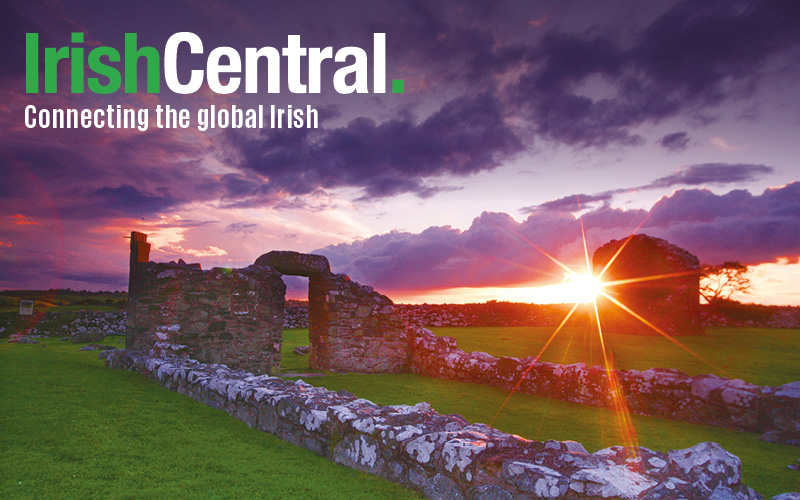Last week’s Irish news cycle was dominated by the news that Sean Fitzpatrick, the former chairman of Anglo Irish Bank, was found not guilty of an illegal share scheme to support the failing bank’s share price.
A visibly relieved Fitzpatrick strolled airily to his town car reminding the press that the past six years had indeed been very ‘trying.’
He forgot to mention that the collapse of the bank he led was an asteroid strike to the already faltering Irish economy in 2008, or that it cost the ordinary Irish taxpayers 30 billion euros. That’s a lot of change to search for behind your sofa.
Irish critics said the verdict proved once again that white-collar misdeeds are neither seen nor prosecuted in Ireland, where the little people are traditionally left holding the can. The nation is simply a scenic offshore tax haven for foreign corporations, a banana republic on life support where the top tier continually sell out their clueless countrymen for a mess of pottage, they said.
I don’t know about that. But what I do know is that in the run up to 2016 an increasing number of our Irish business leaders are comfortable living in a neo-feudalistic nation of gentry and serfs, of the kind the Republic was created to evict and end.
It was once – believe it or not – considered unpatriotic in Ireland to blatantly promote the interests of the landed rich over the common people. That’s because the practice had historical stigma in Ireland like few other places in the world. In Ireland we had an unforgettable example of where the callous indifference of a ruling class to the suffering of the people could lead.
Apparently, we no longer remember. Or if we do we have stopped caring. ‘An oligarchy once again’ doesn’t have quite the same ring to it as ‘A nation once again,’ does it? Yeats saw it first, ‘the horse has changed riders, but the lash goes on,’ he wrote.
Meanwhile Fitzpatrick, a charismatic and elusive character, drew the limelight last week but my eye was drawn by a story that didn’t make the national headlines. Up in Donegal, the Lough Swilly Bus Company, in continuous operation since it was founded in 1852 as a railway system, announced it was to close with the loss of 80 jobs.
They’ll feel the impact of that in the northwest, not that anyone in government in faraway Dublin will notice. The Lough Swilly Bus Company provides the only irreplaceable network that links County Donegal and Derry; it’s impossible to understate its import.
Instead we must watch as the chairman of a black hole bank walks away without consequence to himself (although his actions impact enormously on the lives of the Irish people). We must watch as a venerable 160-year-old Irish company folds (because its impact will only be felt by common people).
We ask a great deal of the average Irish citizen, but we don’t even dare to raise our voice at our betters. So how are our new aristocratic overlords – albeit homegrown ones – any different from the British ones our ancestors often give their lives and livelihoods to evict?
In his new book ‘Capital in the 21 Century’ economist Thomas Piketty studied 200 years of global capitalism and argues that returns on capital continually outstrip returns on growth of the regular economy, the rich keep getting richer everyone else is out of luck: capital keeps accumulating at the top.
The past devours the future, as Piketty puts it. As wealthy people inherit more money, they inherit more power, the more tempted they become to tilt the rules in their favor. Just look at the blatant way the Koch brothers illustrate that principal here in the US.
This week the plaintive search for a Diaspora minister for all of those forced to emigrate by Ireland’s neo—feudal economy reminds me that we’re not serious about acknowledging the root of the problem.
Not only will the request for a Diaspora minister be denied, it will be denied remorselessly, telling the true story of Ireland's establishment: out of sight equals out of mind. That’s one less activist vote to fret about.
Meanwhile the Lough Swilly company homepage is still live, still pathetically listing timetables for suddenly phantom routes. One hundred and sixty years of transporting the little guy took them nowhere.
“Sworn to be free, no more our ancient sireland, shall shelter the despot or the slave,” our national anthem avows.
A mandate in our Irish Constitution instructs that the state must prevent a destructive concentration of essential commodities in the hands of a few. That mandate was MIA in 2008 and it still is. In terms of income inequality, Ireland is now one of the four most unequal nations in the entire world, just ahead of the USA.
So these days it would be far more accurate, far more truthful, if we’d adopt a few lines from Philip Larkin (an English poet) to describe the apparently ineluctable political and economic reality of our little island. It’s not an anthem Pearse or Tone or Collins would have welcomed, but it tells the truth about how we live now:
“Man hands on misery to man.
It deepens like a coastal shelf.
Get out as early as you can,
And don’t have any kids yourself.”




Comments